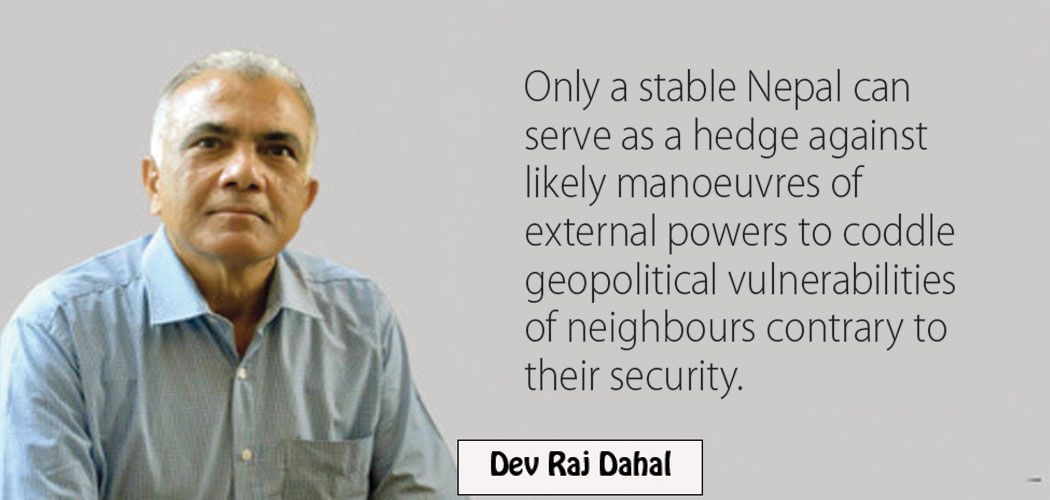Nepal Walks a Fine Balance as It Nurtures Internal Social Cohesion Amidst Geo-Strategic Landscape

Kathmandu, Nepal - As Nepal looks to strengthen its relationships with India, China, the United States, and other neighboring countries, it also faces growing challenges to maintain internal social cohesion.
On one hand, Nepal's strategic location in South Asia makes it a crucial link between major Asian powers. Its geographic proximity to both India and China poses significant challenges and opportunities for the tiny Himalayan nation. To navigate this complex landscape, Nepal has been attempting to build partnerships with all three countries simultaneously, which is seen as a delicate balancing act.
"Nepal's foreign policy strategy must take into account its national interests, the dynamics of regional geopolitics, and the changing global powers," said [Name], a former researcher at the Department of Political Science, Tribhuvan University. "The nation needs to walk a fine line between appeasing its powerful neighbors while maintaining its sovereignty and economic development goals."
India's aggressive pursuit of strategic autonomy has led to tensions with China, but both countries have shared platforms in BRICS, SCO, and issues related to the global south. Meanwhile, the United States is engaging Nepal through Quad partnership talks, which aim to counterbalance Chinese influence in South Asia.
In addition, Western powers have established grassroots networks to promote their ideologies, interests, and strategic orientations with Nepali leaders and civil society groups. However, China has also been diversifying its ties with various Nepali political parties.
Nepal's strategic geography is a significant bargaining chip for its neighbors, offering labor markets in Japan, South Korea, Malaysia, and the Gulf region as well as conscription of Nepalis in foreign armies and police forces. Nepal's hydro potential and cultural sites are also attractive destinations for tourists and pilgrims.
"Nepal needs to unlock the potential of these strategic resources to promote economic growth and social development," added [Name]. "But this requires careful diplomacy with all its stakeholders, especially to avoid being trapped between powerful regional powers."
In recent years, Nepal has been hit hard by debt dependence, trade deficits, and financing gaps affecting infrastructure development, education, and healthcare. The nation's political elite is often at odds over strategic priorities, further complicating the challenges faced by Nepal.
"Political uncertainty in the country is a major hindrance to creating long-term foreign policy strategies that benefit all Nepalis," said [Name]. "This calls for a deep rethinking of our national development agenda and its ties with regional powers."
Ultimately, Nepal's future lies in skillfully navigating these complexities while leveraging the benefits from multiple poles of power. The nation must chart a path towards balanced development, embracing diversity, democracy, human rights, and sustainable economic planning.
The journey ahead will not be easy. But for Nepal, as said is often expressed in local proverb: "Happina pani par kaso", meaning, "A happy nation rises from all its problems".
